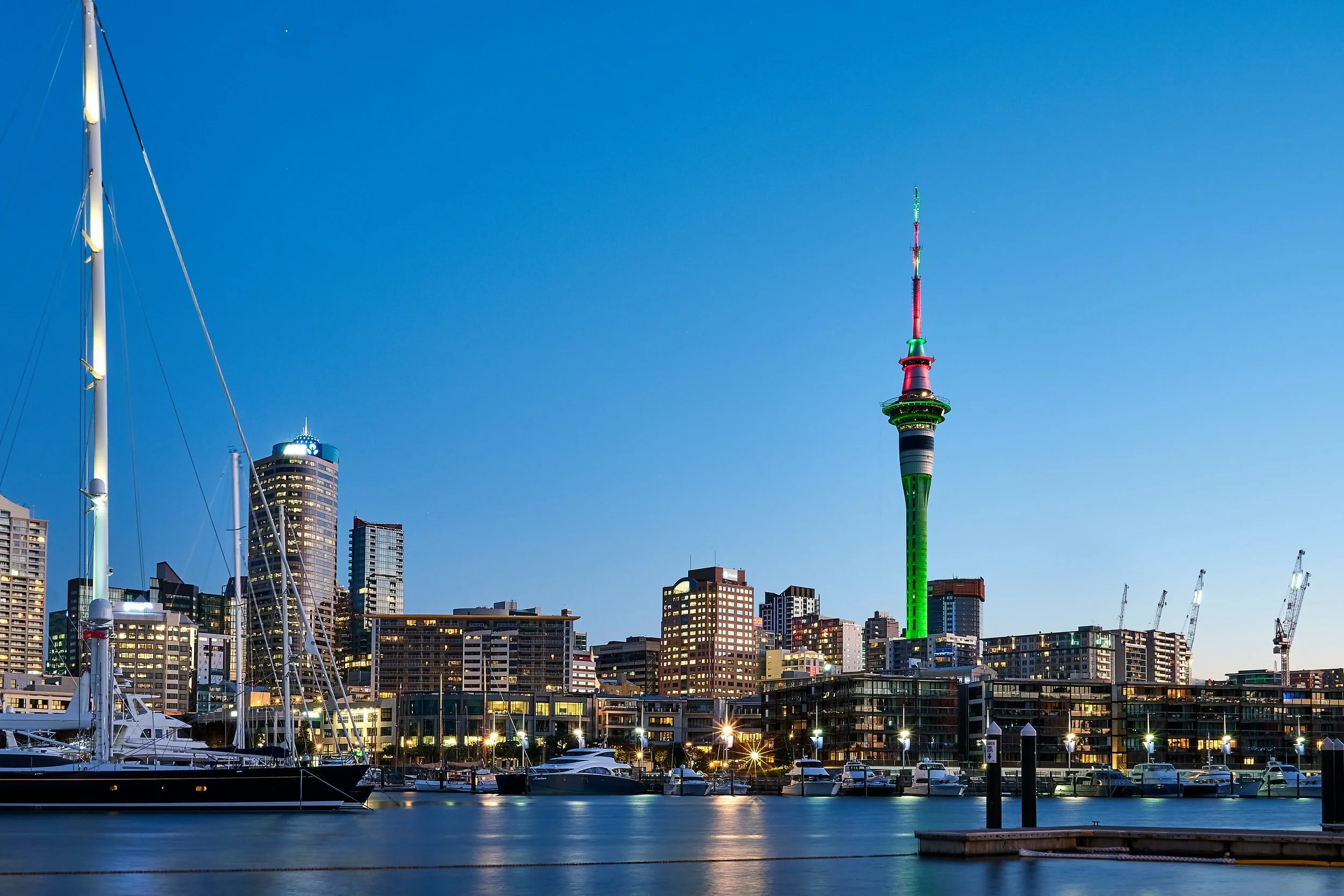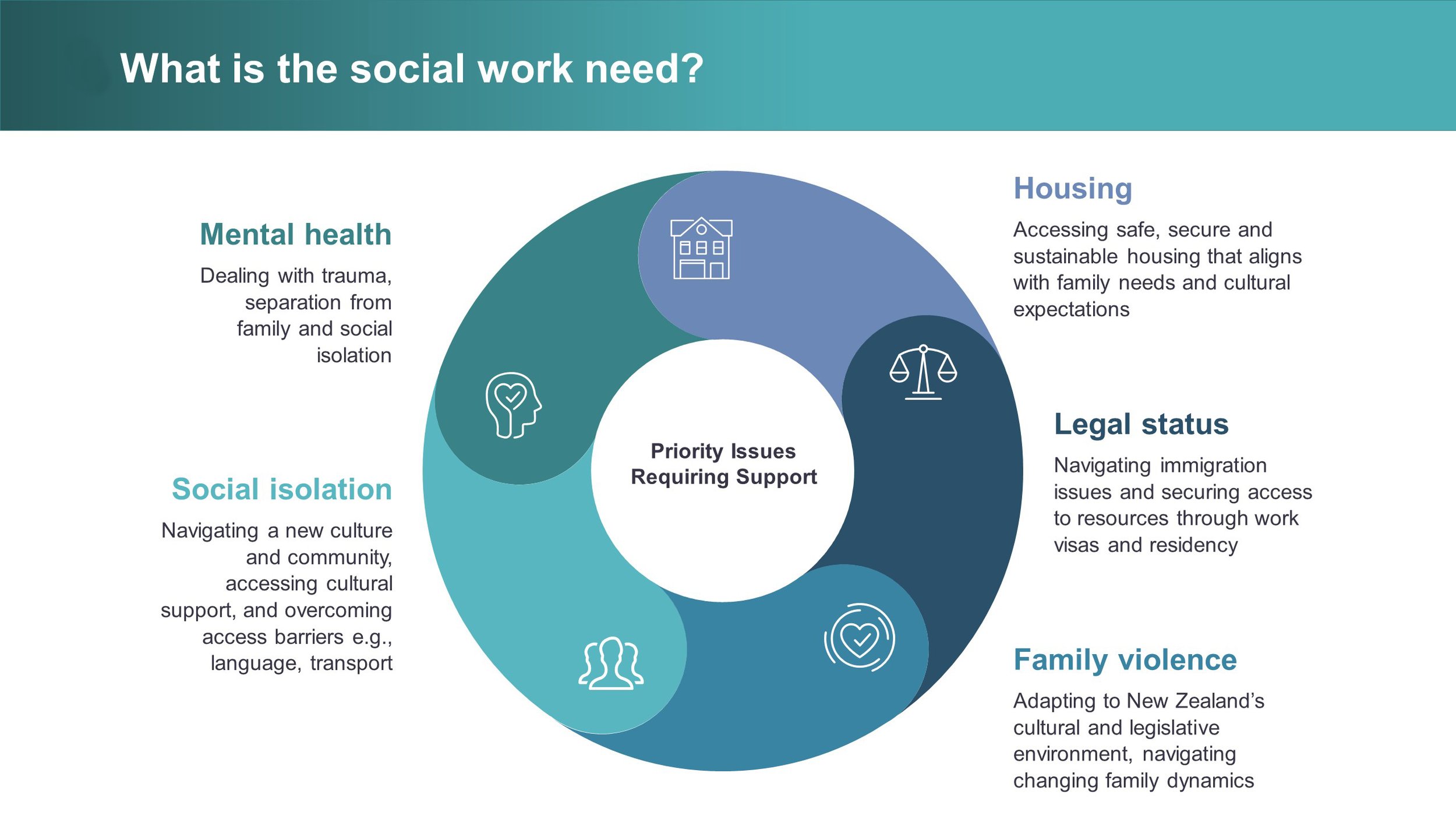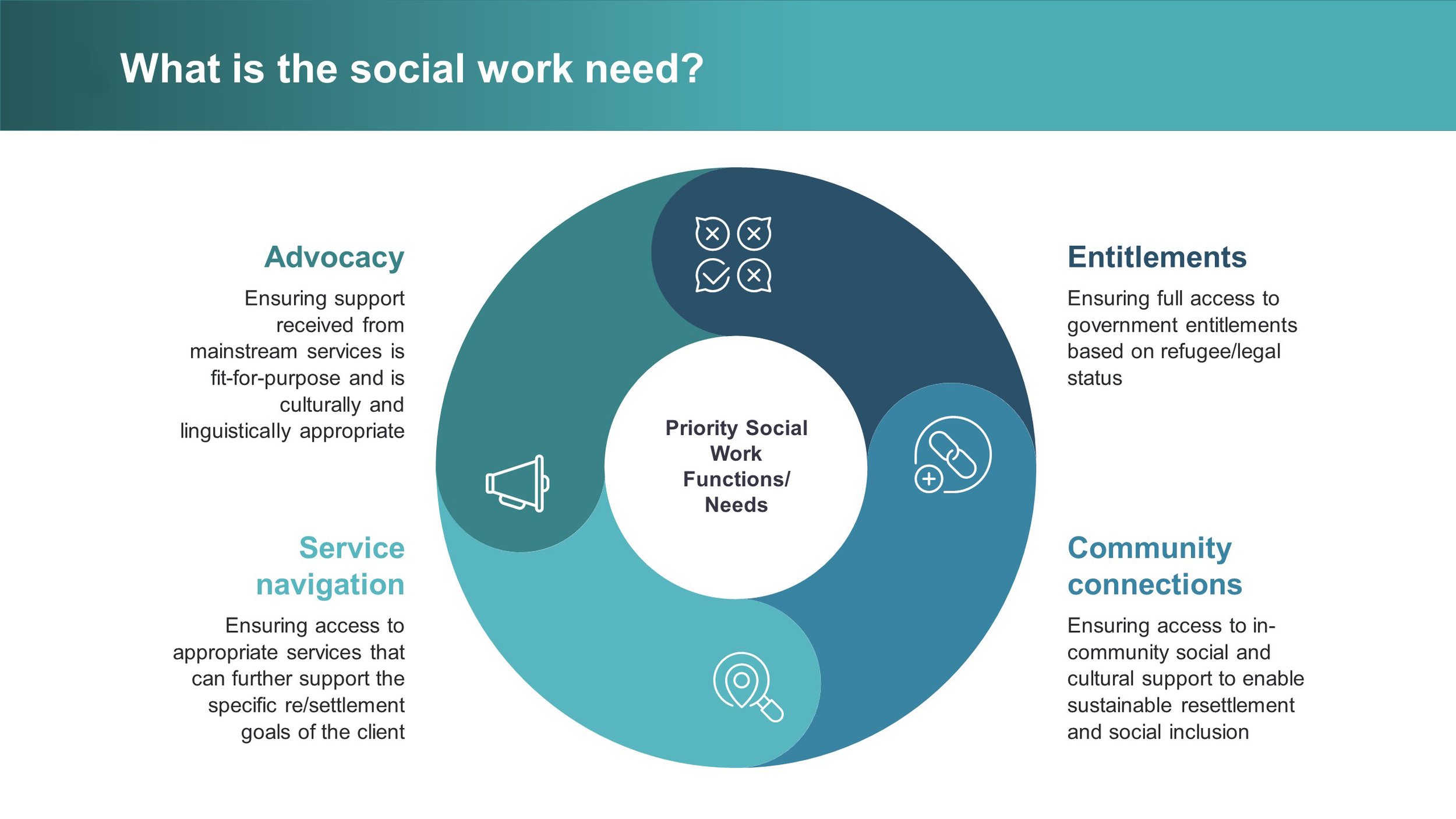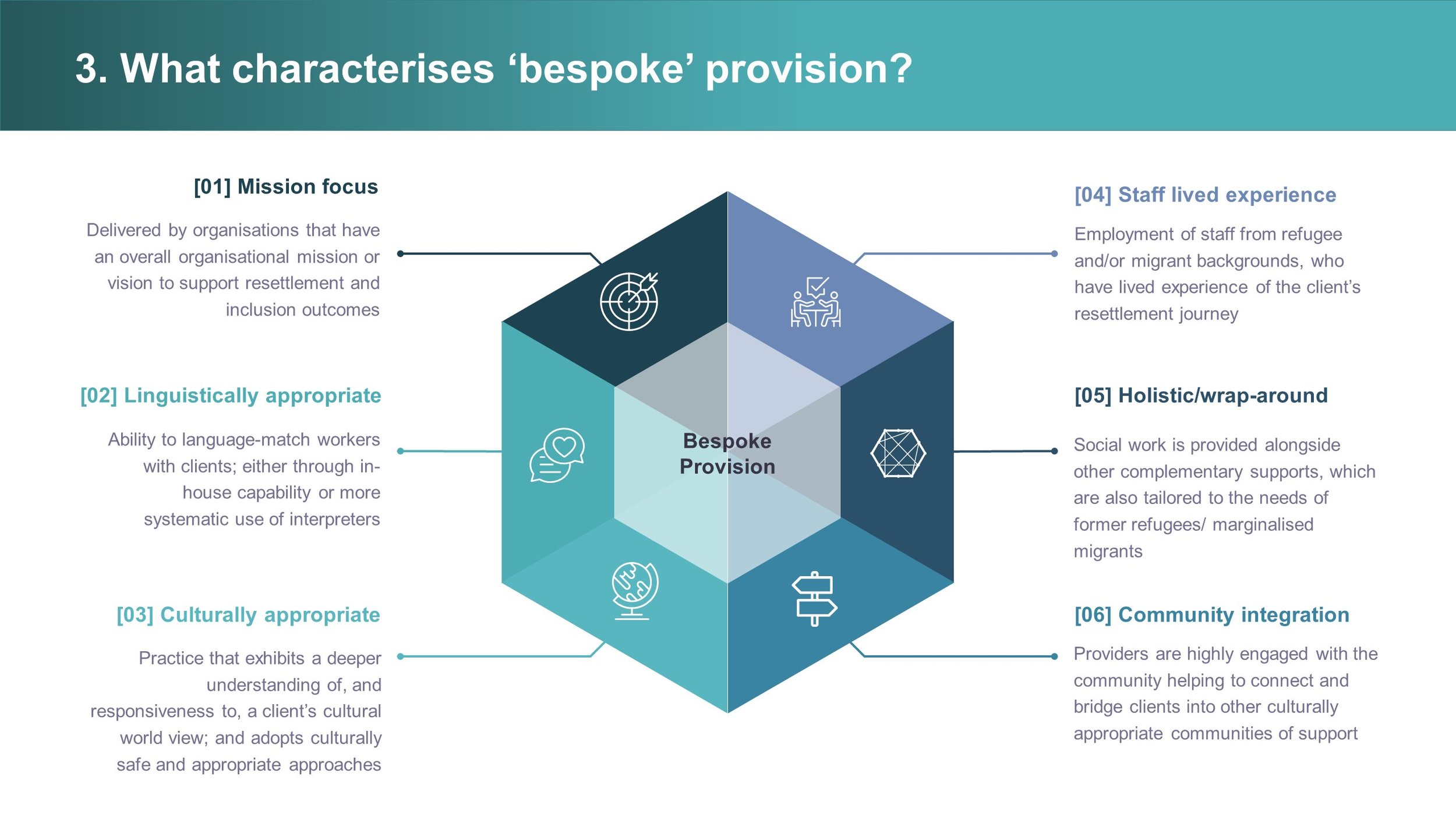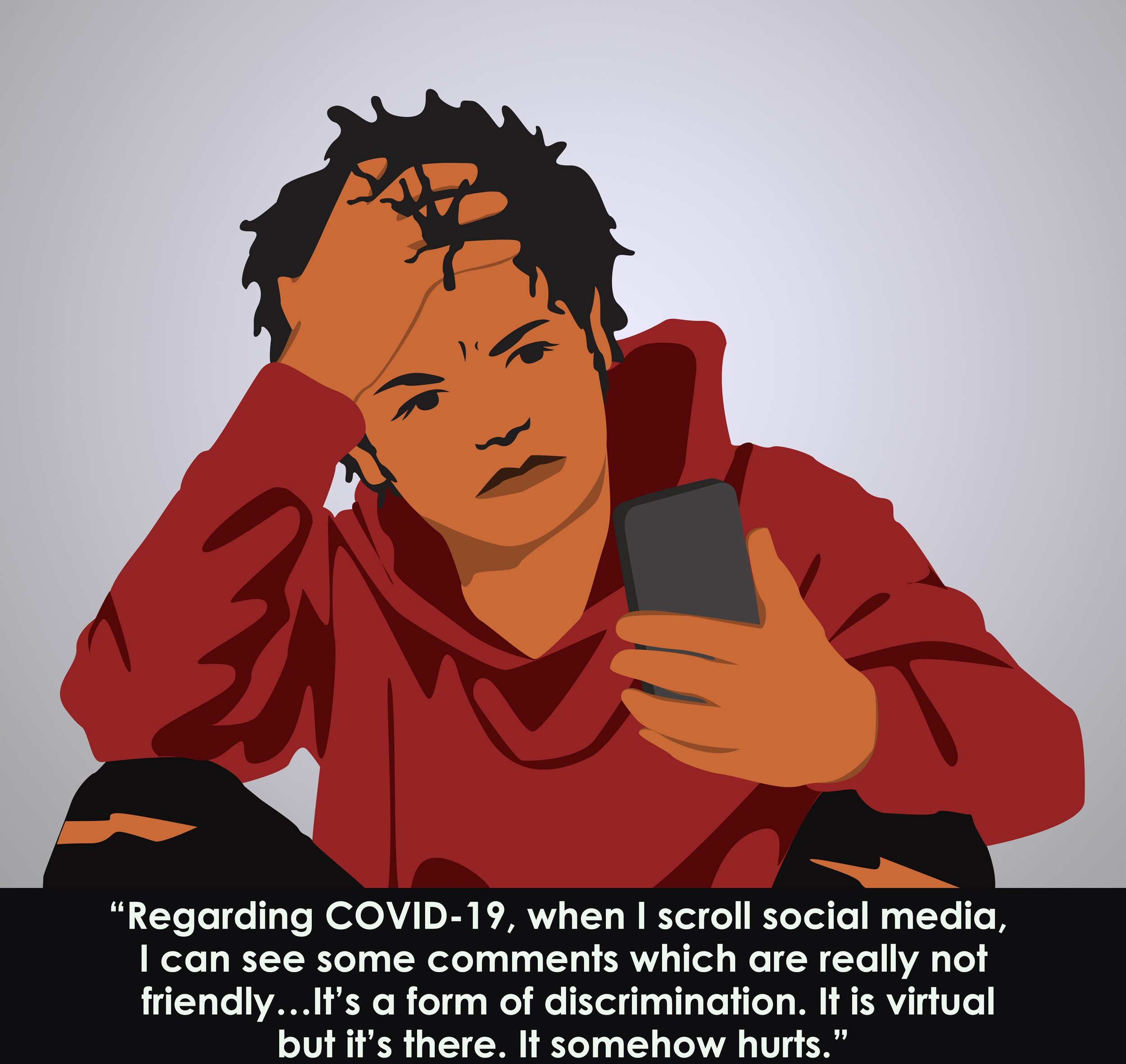Understanding Social Work Provision to Former Refugee and Marginalised Migrant Communities in Auckland
The experiences of former refugee and migrants in Auckland highlighted several challenges in service provision around social work, in accessing culturally appropriate support, the value of social work for these communities and the sustainability of resourcing bespoke social work services and other complimentary community support.
However much of this evidence was anecdotal and so a group of NGOs including Belong Aotearoa, UMMA Trust, RASNZ, NZ Red Cross, Asylum Seekers Support Trust, Aotearoa Resettled Community Coalition and Family Action decided to collaborate on research that would address this.
Based on their collective mission/roles supporting New Zealand’s former refugee and migrant background communities, the research purpose was to develop an evidence base that would build understanding about the social work need and roles, in relation to re/settlement and wellbeing and identify opportunities for collective action towards.
The findings highlighted the highest need communities, the key social work needs, what bespoke social work for these communities looks like and the opportunities to move forward.
Migrant Experiences in the time of COVID
Amplifying voices of our communities enables diverse perspectives and experiences to be heard, to then help shape our understanding of issues and solutions that are truly transformative and regenerative. COVID-19 offered a pressing opportunity for Belong Aotearoa to further look at the plight of newcomer communities and amplify their voices.
Belong Aotearoa undertook research to gather the experiences of migrant communities living in Auckland, focusing on 160 people born overseas. The research report highlighted the vulnerability of recent migrant in Aotearoa, New Zealand during a global crisis; and the systemic barriers to a positive settlement journey that existed pre-COVID yet to be fully addressed. Both creating a more complex environment to navigate during extraordinary times.
Based on our findings, migrant experiences during COVID are encapsulated by what we term as the ‘4Rs’, namely:
RISKS TO WELLBEING
The effects of COVID on individual and collective well-being cannot be understated, especially among migrant communities. As shared by our respondents, the effects of COVID-19 are complex and far-reaching.
Re-rooting & Re-routing of racism
Our research supports what has been widely reported regarding the spike in micro-aggressions towards migrants and racially motivated attacks especially involving ethnic minorities from Asian backgrounds due to COVID-19. Racism has been re-rooted in a time of extreme uncertainty and re-routed virtually, magnifying deep-seated intolerance and divisiveness that counters social cohesion.
Restricted access to covid-related support & information
Despite urgency of channelling correct information and avoiding misinformation, there remains great concern around accessing timely and translated COVID-19 updates with confusion around provided information, support access and delivery, further impacted by visa status.
Reskilling Relocation if not Re-migration
As a result of the previous challenges, our research identified migrant aspirations around reskilling and gaining new skills to enhance the chances of keeping their jobs and preventing potential job loss. Some respondents expressed wanting to leave New Zealand and re-migrating to another country.

